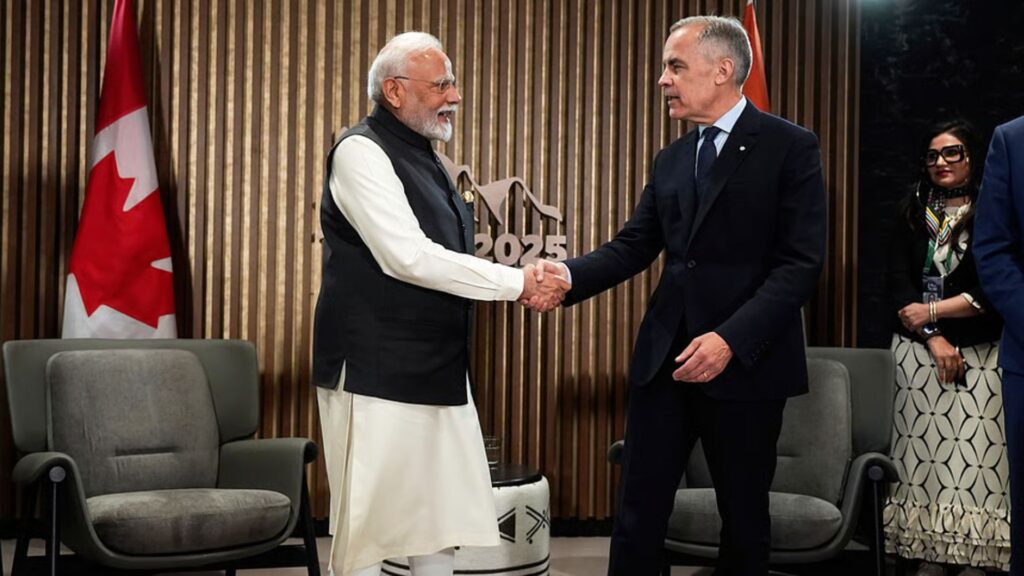In a significant step toward mending diplomatic ties, Indian Prime Minister Narendra Modi and newly elected Canadian Prime Minister Mark Carney met on the sidelines of the G7 Summit in Alberta and agreed to revive stalled trade negotiations between the two nations.
The meeting marked the first interaction between the leaders since Carney assumed office, signaling a potential thaw in relations that had been strained since 2023. According to a statement from the Prime Minister’s Office (PMO), the two leaders underscored the importance of resuming talks on the Early Progress Trade Agreement (EPTA), with an eye toward a broader Comprehensive Economic Partnership Agreement (CEPA) in the future.
Modi and Carney reaffirmed their commitment to shared democratic principles, sovereignty, and mutual respect. They agreed to normalize diplomatic presence, which includes the swift reinstatement of High Commissioners in New Delhi and Ottawa. The PMO further stated that both countries would work to restart senior ministerial and working-level dialogues to rebuild trust and momentum.
During their talks, the leaders emphasized expanded collaboration in key sectors such as clean energy, liquefied natural gas (LNG), critical minerals, artificial intelligence, higher education, food security, digital innovation, and mobility. They also reiterated their shared support for a free and open Indo-Pacific and acknowledged progress made at the G7 on issues including climate change and sustainable development.
India-Canada relations saw a dramatic downturn in 2023 when then Prime Minister Justin Trudeau accused Indian agents of being involved in the killing of a Canadian citizen linked to a Khalistani separatist movement. India firmly denied the claims, labeling them as politically motivated. The fallout led to diplomatic expulsions on both sides, a suspension of trade talks, and disruptions in visa services.
The Modi-Carney meeting represents a fresh beginning, with both leaders aiming to overcome the diplomatic freeze and return to constructive engagement.
Strengthening Ties with Cyprus and the EU
Separately, Prime Minister Modi also met with Cyprus President Nikos Christodoulides, where they agreed to strengthen bilateral ties through a five-year strategic roadmap. Drawing parallels between India’s “Viksit Bharat 2047” initiative and Cyprus’s “Vision 2035,” both leaders highlighted common goals of sustainable development and economic growth.
Key outcomes from the meeting include plans to bolster defence industry partnerships, initiate cybersecurity and maritime security dialogues, and establish real-time intelligence-sharing mechanisms to combat terrorism, arms smuggling, and drug trafficking.
Modi also reiterated that negotiations on the India-European Union Free Trade Agreement (India-EU FTA) were on track to conclude by the end of the year. Cyprus reaffirmed its support for India’s push for a permanent seat on a reformed United Nations Security Council.
Additionally, the launch of the India-Cyprus-Greece Business and Investment Council, along with new mobility and air connectivity arrangements, is expected to enhance India’s economic engagement with the Mediterranean region.
Together, these meetings at the G7 Summit reflect India’s renewed diplomatic outreach and commitment to strengthening global partnerships across economic, security, and strategic domains.

